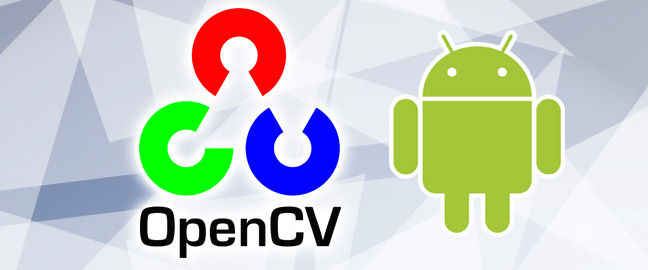Opencv Sdk For Android Studio Download
Join GitHub today
Get the OpenCV4Android SDK¶ Go to the OpenCV download page on SourceForge and download the latest available version. Currently it’s OpenCV-2.4.11-android-sdk.zip. Create a new folder for Android with OpenCV development. For this tutorial we have unpacked OpenCV SDK to the C:WorkOpenCV4Android directory. Free download page for Project OpenCV's opencv-3.2.0-android-sdk.zip.The Open Source Computer Vision Library has 2500 algorithms, extensive documentation and sample code for real-time computer vision. It works on Windows, Linux, Mac OS X, Android and iOS. Tutorial on OpenCV for Android Setup EE368/CS232 Digital Image Processing, Winter 2019 Introduction In this tutorial, we will learn how to install OpenCV for Android on your computer and how to build Android applications using OpenCV functions. First, we will explain how to download and install the OpenCV library onto your computer. Currently, the OpenCV SDK for Android still contains all code as Eclipse projects, which has been deprecated for a long time in favor of Android Studio. This repository simply contains the resulting module from a clean import of the legacy Eclipse project, plus the manager APKs.
Opencv Android Download
GitHub is home to over 40 million developers working together to host and review code, manage projects, and build software together.
Sign upDownload OpenCV Android SDK

- Download OpenCV4Android from http://opencv.org/downloads.html. The latest version at the time of writing is 3.1.0.
- Extract the downloaded zip file.
Setup Android Studio
- Open Android Studio and create a new project.
- Then select
File -> New -> Import Module. - You need to select the OpenCV SDK location. Select
OpenCV-3.1.0-android-sdk/sdk/java. Then select Next and Finish. OpenCV sdk is now imported as a module. - Open the
build.gradlefile from the OpenCV module. - Change the
compileSdkVersion,targetSdkVersionandbuildToolsVersionvalue to the latest version you use and sync the project. - Switch back to Android view in Project explorer. Right click on the
appmodule and selectOpen Module Settings. - For the
appmodule in the Dependencies tab, selectAdd -> Module Dependency -> openCVLibrary.
Add Native libraries
These steps are only for static initialization, ignore them if you are using async initialization with OpenCV Manager.
- Now we need to add native JNI libraries in our project. These libraries should be added in
jniLibsdirectory. - Create a new
jniLibsdirectory inapp-> src -> main. - Open the extracted OpenCV SDK directory. Switch to
OpenCV-3.1.0-android-sdk/sdk/native/libsdirectory. - You will find directories for many CPU architectures. Copy the required architecture/s directory to the jniLibs directory.
- Delete all files except libopencv_java3.so.
- Add
android.useDeprecatedNdk=truetogradle.propertiesfile.
Testing OpenCV
With async initialization
With static initialization
References
Clone this wiki locally
The OpenCV Java SDK for Android as a ready-to-go module for Android Studio 3.0. Nektar impact lx 25 user manual.
Installation
This repository has JitPack.io support, so you can integrate it directly into your Android Studio projects by following the instructions on https://jitpack.io/#floe/opencv-android/3.4.1.
Note: this is only the Java component. You will also need to install the OpenCV Manager app, which provides the native libraries and is either available from the Play Store (outdated) or directly as an APK from https://github.com/floe/opencv-android/tree/master/manager. A minimal sample using just the Java interface is available at https://github.com/floe/opencv-tutorial-1-camerapreview.
Note: if you want to build native code using OpenCV in your app, then you also need to download and unzip the corresponding 'OpenCV Android SDK 3.4.0' from https://github.com/opencv/opencv/releases/download/3.4.1/opencv-3.4.1-android-sdk.zip and edit app/build.gradle to set the CMake config path to /path/to/opencv-android-sdk-3.4.1/sdk/native/jni/. An example project using this approach is available at https://github.com/floe/opencv-tutorial-2-mixedprocessing.
Background
Android Studio Opencv Tutorial
Currently, the OpenCV SDK for Android still contains all code as Eclipse projects,which has been deprecated for a long time in favor of Android Studio.
This repository simply contains the resulting module from a clean import of the legacy Eclipse project, plus the manager APKs.
(Of course, the clean solution would be to have the OpenCV build process output Android Studio modules right away.But I don't have time for that. If you feel you want to tackle this, see discussion at https://github.com/opencv/opencv/issues/5003 ;-)
/motorola-droid-maxx-2-user-manual.html. View and Download Motorola Droid Maxx 2 user manual online. Droid Maxx 2 Cell Phone pdf manual download. Also for: Droid turbo 2. Find out how to use and troubleshoot your DROID Maxx 2 with interactive simulators, how-to guides and support videos. Motorola DROID MAXX 2. Motorola DROID MAXX 2 - Support Overview. Find device-specific support and online tools for your Motorola DROID Maxx 2. Select another device. Find my phone. Motorola info. View your User Guide (PDF.
Opencv For Android
Note: I'm currently using outdated build tools in the project (gradle:2.3.2 and android-maven-gradle-plugin:1.5). This is because jitpack.io doesn't yet seem to support the current gradle version 3.0.1. I'll hopefully be able to update this soon.